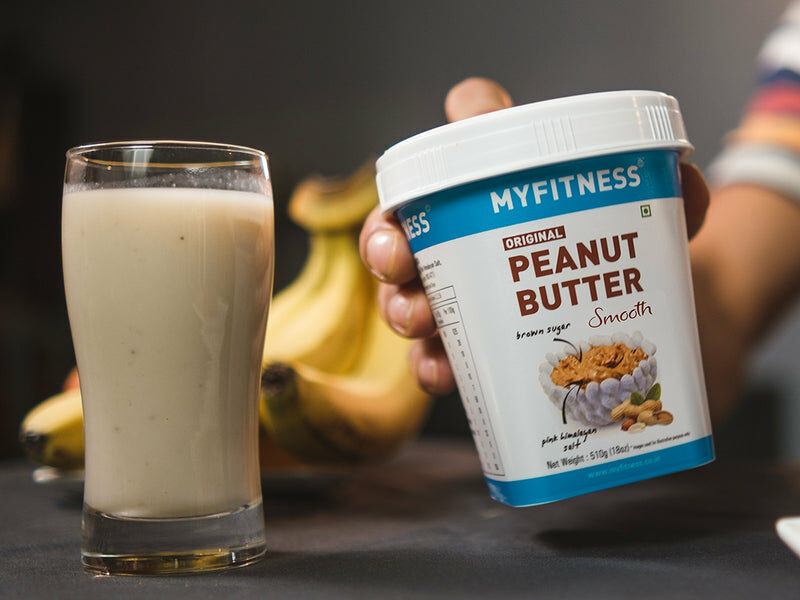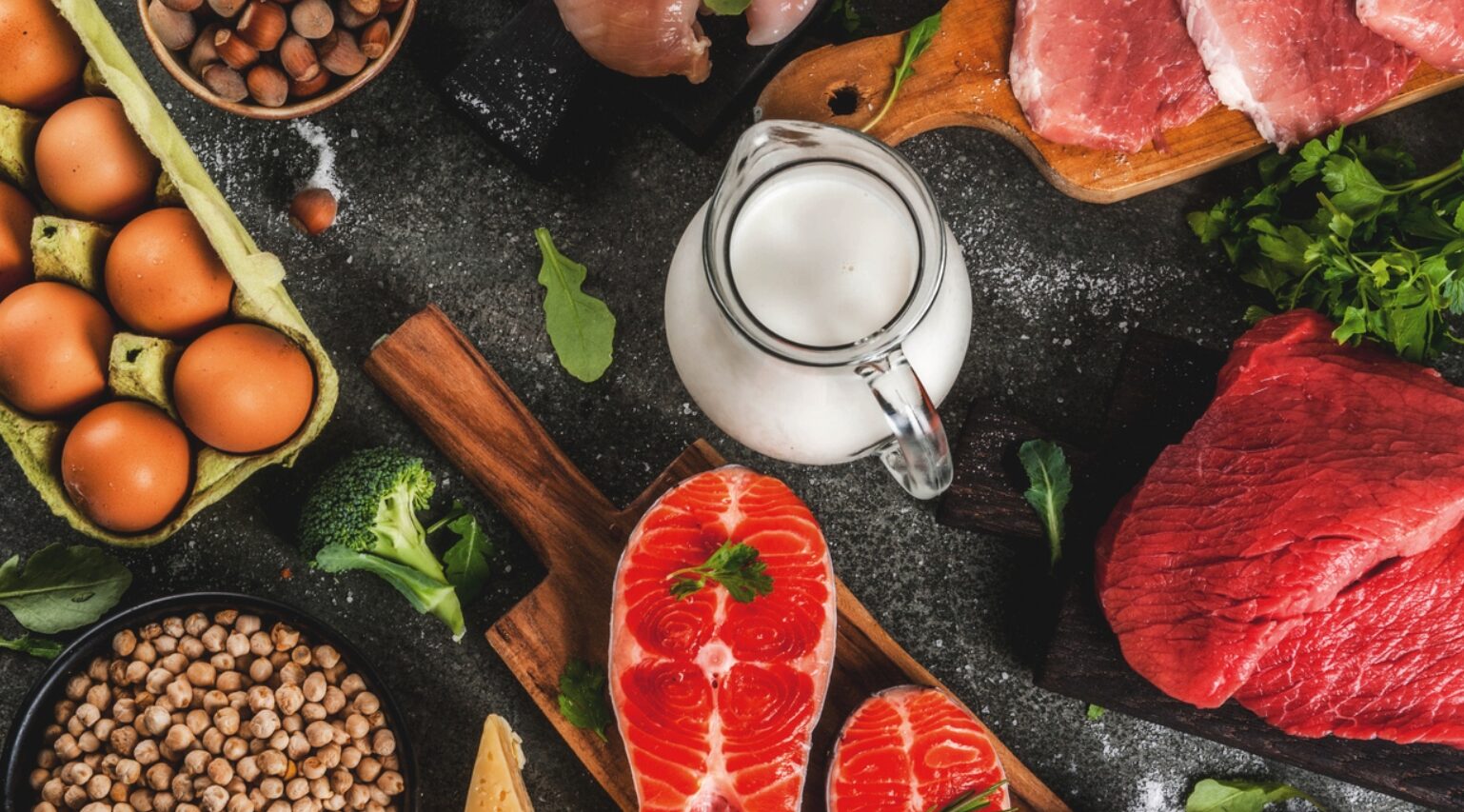Balancing your diet goes beyond calorie, sugar, and salt management.
Often overlooked, protein benefits play a vital role in the creation and maintenance of every cell in our bodies.
It’s a key “macronutrient’ you need in significant quantities for a healthy life.
In this article, we’ll delve into numerous protein benefits and present you with a collection of 10 benefits it offers for your overall well-being.
Let’s uncover why protein is a fundamental cornerstone of a healthy life.
1. Building Strong Muscles

Protein acts as the building blocks for your muscles. When you engage in activities like weightlifting or exercise, having enough protein intake is crucial. It not only helps you maintain your existing muscle mass but also supports the growth of new muscle. Numerous studies1 confirm that a high-protein diet can contribute significantly to muscle development and overall strength. So, if you’re active or striving to build stronger muscles, make sure protein is a part of your daily nutrition.
2. Healing After an Injury

Protein benefits in the healing process of your body as the primary component required for repairing tissues and organs. Whether you’ve had surgery, a sports injury, or any other form of physical trauma, making sure you consume sufficient protein can make a significant difference in your recuperation.
3. Feeling Full for Longer

A higher protein intake has an interesting side effect – it keeps you feeling full for more extended periods. When you consume more protein, you’ll notice that your hunger pangs and cravings diminish. This is because protein prompts your body to produce satiety hormones which send signals to your brain indicating that you’re satisfied. Not only does protein help you curb your appetite, but it also makes it easier to resist the temptation of snacking on unhealthy foods between meals.
In essence, protein slows down digestion2 process, helping you stay full and satisfied throughout the day. You can try myfitness peanut butter to stay full for a longer period.

4. Taming Your Cravings

Often, we crave food as a reward or comfort for our brains, even when we’re not truly hungry. By incorporating more protein into your meals, you can effectively manage these cravings, leading to a reduction in late-night snacking and unhealthy indulgences. Protein benefits reduce your overall appetite, enhance feelings of fullness, and subsequently lower your daily calorie consumption.
5. Strengthening Your Bones

Ensuring that your body gets an adequate supply of essential nutrients is vital for its proper functioning, and protein is one of these essential nutrients. Increasing your protein intake can be beneficial for your bone health throughout your life as it helps prevent conditions like osteoporosis, which can lead to brittle and weak bones.
6. Boosting Metabolism and Burning Fat

When you consume an excess of calories, protein is the least likely macronutrient to be stored as body fat, especially if you incorporate regular strength training into your routine. Although calorie control is still a key aspect of weight loss, a higher protein intake can aid in preventing fat storage. Additionally, protein is the most thermogenic macronutrient, meaning that digesting protein burns more calories than digesting fats or carbohydrates.
7. Lowering High Blood Pressure

High blood pressure is a significant risk factor for serious health conditions such as heart attacks, strokes, and chronic kidney disease. Research has demonstrated that a high-protein benefits diet can be beneficial for individuals with hypertension3. Not only can a high-protein diet help lower blood pressure, but it can also reduce cholesterol and triglyceride levels.
8. Keeping the Weight Off

If your goal is to maintain the weight you’ve lost, increasing your protein benefits intake is a valuable strategy. Protein benefits in weight management by increasing feelings of fullness and preserving muscle mass during periods of calorie restriction. These factors are crucial components of successful weight maintenance.
9. Staying Fit as You Age

As you grow older, your body naturally loses muscle mass and bone density. Protein plays a critical role in preserving these essential aspects of your health. It’s not just about muscles and bones, though. Protein benefits in a healthy immune system, proper metabolic function, and brain health. Without enough protein in your diet, you may experience weight fluctuations, a slower metabolism, reduced energy levels, and decreased strength and endurance.
10. Protein and Your Kidneys

There’s a common misconception that eating a lot of protein is harmful to your kidneys. Numerous studies4 have debunked this myth, showing that a high-protein benefits diet doesn’t have negative effects on kidney health for individuals without renal disease. If you’ve been avoiding protein due to this misconception, it’s time to set the record straight and start reaping the benefits of a high-protein diet. However, if you already have kidney issues, it’s essential to consult your doctor to determine the right amount of protein for your specific situation.
Conclusion
Protein is an essential component of a healthy diet, and its benefits extend far beyond muscle growth. From aiding in the recovery process after an injury to reducing cravings, supporting bone health, and even playing a role in weight management, protein benefits to be a versatile and valuable nutrient.
Remember that the key to a balanced diet is variety, and while protein is crucial, it should be part of a well-rounded and diverse nutritional plan. To make the most of the protein benefits, consult with a healthcare professional who can help tailor your diet to your specific needs for the multitude of advantages that protein offers for a healthier, happier life.
Frequently Asked Questions
What is the main benefit of eating protein?
Proteins are made up of chemical ‘building blocks’ called amino acids that your body uses to build and repair muscles and bones and to make hormones and enzymes.
What are the 5 protein benefits?
Eating high-protein foods has many fitness benefits, including:
1. Speeding recovery after exercise and/or injury.
2. Reducing muscle loss.
3. Building lean muscle.
4. Helping maintain a healthy weight.
5. Curbing hunger.
How much protein per day?
Most adults need around 0.75g of protein per kilo of body weight per day (for the average woman, this is 45g, or 55g for men). That’s about two portions of meat, fish, nuts or tofu per day.
References
- High Protein Diets: Good or Bad? (2021). Retrieved from https://www.medicinenet.com/high_protein_diet_pictures_slideshow/article.htm [↩]
- Jerry R. Balentine, D. (2022). Digestive System Organs, Main Functions, Mouth, Stomach, Liver. Retrieved from https://www.medicinenet.com/the_digestion_process_organs_and_functions/article.htm [↩]
- John P. Cunha, D. (2022). High Blood Pressure (Hypertension) Causes, Symptoms, How to Lower, Chart, and Ranges. Retrieved from https://www.medicinenet.com/high_blood_pressure_hypertension/article.htm [↩]
- (N.d.). Retrieved from https://academic.oup.com/ndt/article/35/1/1/5614387 [↩]

